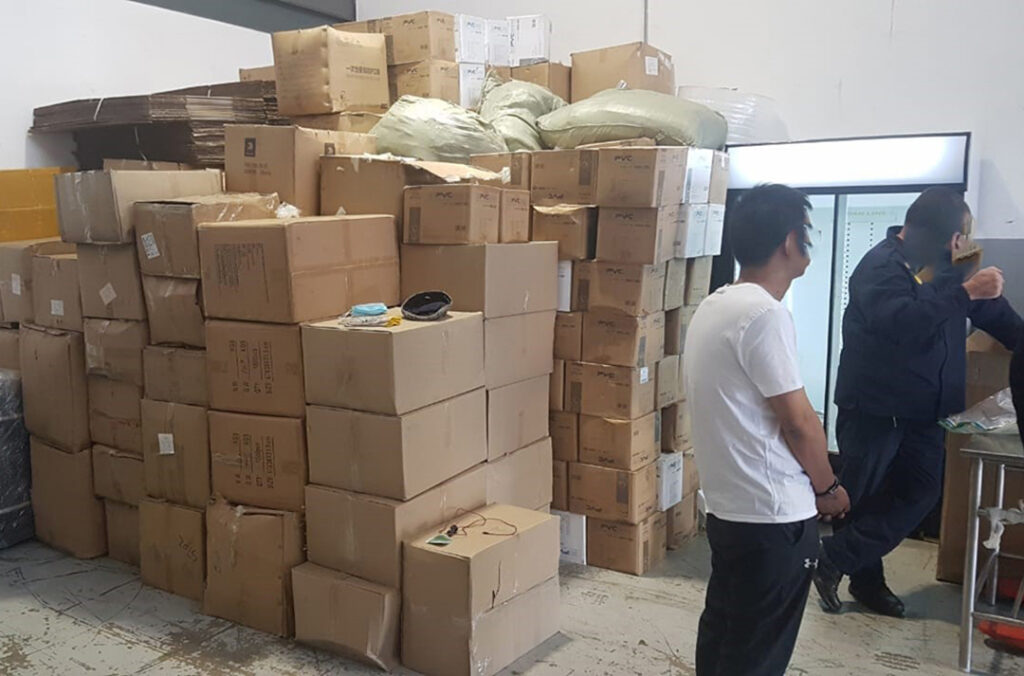ADF STAFF
Africa already was a hotbed of fake medicine when the COVID-19 pandemic struck.
Now experts warn that fake and counterfeit vaccines could flow into markets around the continent as shortages of legitimate vaccines persist.
“We have noted that of late there has been the existence of reports of fake vaccines found in South Africa,” the country’s health minister, Dr. Zweli Mkhize, told Parliament on March 10. “This was brought to our attention by the South African Police Services working with Interpol, and we would like to indicate that it’s a very worrying issue.”
On November 19, 2020, South African police discovered 2,400 fake COVID-19 vaccine doses and a cache of counterfeit N95 face masks worth nearly $450,000. They arrested three Chinese nationals and a Zambian national after police raided two warehouses in Germiston, Gauteng province in northeastern South Africa.
The fake vaccines and masks were imported from Singapore to South Africa by a company through Johannesburg’s international airport, according to Interpol. The import documentation declared that the vaccines were cosmetic injections. The products had been advertised on a Chinese social media app called WeChat South Africa.
Days later, Interpol issued a global alert, warning its 194 member countries to prepare for organized crime to target COVID-19 vaccines.
“Criminal networks will also be targeting unsuspecting members of the public via fake websites and false cures, which could pose a significant risk to their health, even their lives,” said Interpol Secretary General Jürgen Stock in a statement.
“It is essential that law enforcement is as prepared as possible for what will be an onslaught of all types of criminal activity linked to the COVID-19 vaccine.”
The Germiston raid led Chinese police to bust a ring that was manufacturing counterfeit COVID-19 vaccines in Beijing and in Jiangsu and Shandong provinces. Chinese police arrested 80 people and seized more than 3,000 fake vaccines consisting of saline solution in a February 2021 raid of the manufacturing site.
Stock called it “the tip of the iceberg when it comes to COVID-19 vaccine-related crime.”
It is a problem of particular concern in Africa, where demand for vaccines is high because countries are struggling to roll out vaccine campaigns.
The World Health Organization (WHO) estimates that less than 1% of Africa’s 1.5 billion people have been vaccinated. The WHO also reported that 42% of all cases of counterfeit medication reported between 2013 and 2017 were in Africa, which imports most of its pharmaceutical products.
The Kenyan government in April reversed a decision to let private health care companies import vaccines.
“Participation of the private sector in the vaccination exercise threatens the gains made in the fight against COVID-19 and puts the country at international risk should counterfeit commodities find their way into the Kenyan market,” Mutahi Kagwe, Kenya’s Cabinet secretary for health, said on April 2.
Interpol also said in March that there were “additional reports of fake vaccine distribution and scam attempts targeting health bodies, such as nursing homes.”
The agency warned “that no approved vaccines are currently available for sale online.”
“Any vaccine being advertised on websites or the dark web will not be legitimate, will not have been tested and may be dangerous. Anyone who buys these drugs is putting themselves at risk and giving their money to organized criminals.”

